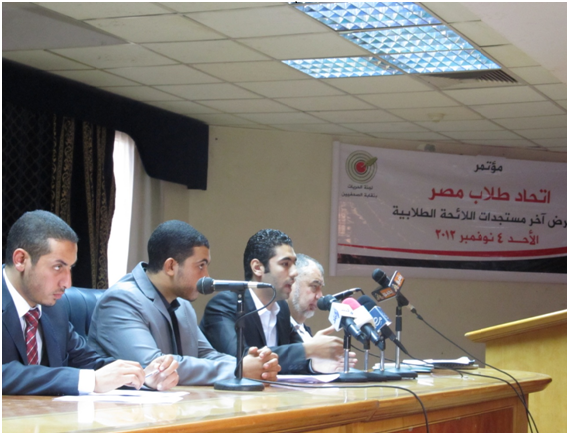Salah Al-Basosy, a lawyer who was held in Kafr Al-Dawar police station, died Friday night, with his family accusing the police of wilful neglect in providing adequate medical care to him in detention.
However, the Ministry of Interior said his death came of normal causes, as he suffered from hepatitis-C. Members of Al-Basosy’s family demonstrated in front of the police station, accusing the officers of causing his death, according to the ministry. Five family members were arrested.
The 50-year-old lawyer was a father of four children, and was arrested last March, according to the Egyptian Coordination for Freedom and Rights.
Following Al-Basosy’s death, his relatives gathered around the police station chanting against the police, which caused the police forces to clash with them, leading to arrests, Al-Haqanya Law Center reported.
Al-Basosy’s family told local media that they wanted to visit him after receiving news that he suffered from intense bleeding, but the station officials claimed that his condition was stable, and refused to transfer him to a hospital.
The Beheira Security Directorate denied the accusations, stating that all prisoners who suffer from serious illnesses are transferred to the nearest hospital and are given the necessary healthcare.
Despite official reports on the existence of suitable medical care in prisons and detention centres, deaths in Egyptian police custody continue to be common, amid constant criticism from local and international NGOs.
In August, a National Council for Human Rights (NCHR) delegation that visited Tora Prison claimed they witnessed no major violations of prisoners’ rights during their visit. The delegation made only minor recommendations, including changing old beds and creating a shaded area for families queuing to visit.
The NCHR delegation had visited the prison complex following numerous reports of violations and deaths. Earlier in August, Essam Derbala, a former Al-Jamaa Al-Islamiya leader, died due to what the Islamist group claimed was intentional neglect of medical care. The authorities, however, argued that his death was caused by a sudden drop in blood pressure. Muslim Brotherhood member Farid Ismail also died amid similar accusations of intentional neglect.
Various NCHR members, however, criticised the visit and the way it was organised. Mohamed Abdel Qodous, an NCHR member who was part of the delegation, added that the prison administration knew of the visit beforehand and prepared for it appropriately. He wrote in a public statement: “For example, the prisoner’s family would obtain a visit permit and the administration registers it in the logs, then prevents the family from entering the prison.”
Furthermore, several members walked out of a press conference following the visit, in objection to the findings reported during the conference.
The El-Nadeem Centre for Rehabilitation of Victims of Violence documented 65 torture cases inside prisons in September, according to a report issued Friday.
The report documented cases of torture inside prisons, forced disappearances, and inadequate healthcare inside detention facilities, among other police violations towards prisoners across Egypt. The centre cited multiple sources, such as personal testimonies by the families of detainees, rights organisations statements, and news reports.
In the strongly-worded report, El Nadeem Centre urged the government to take responsibility for the health and treatment of detainees in Egyptian custody.


